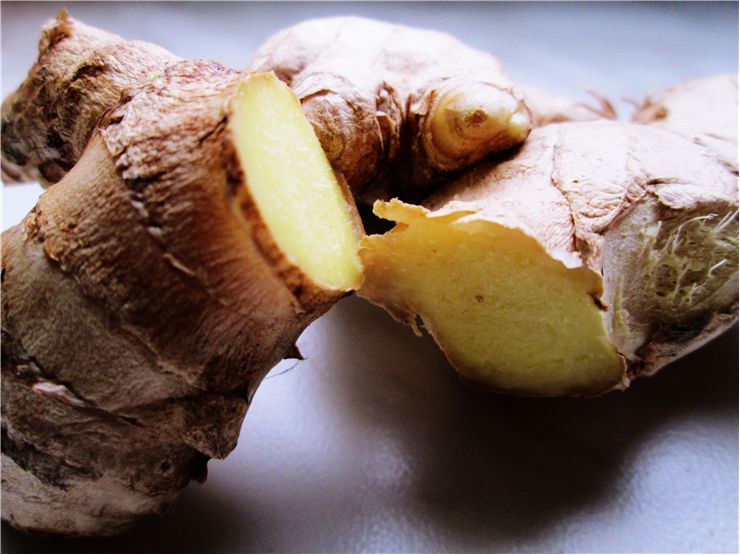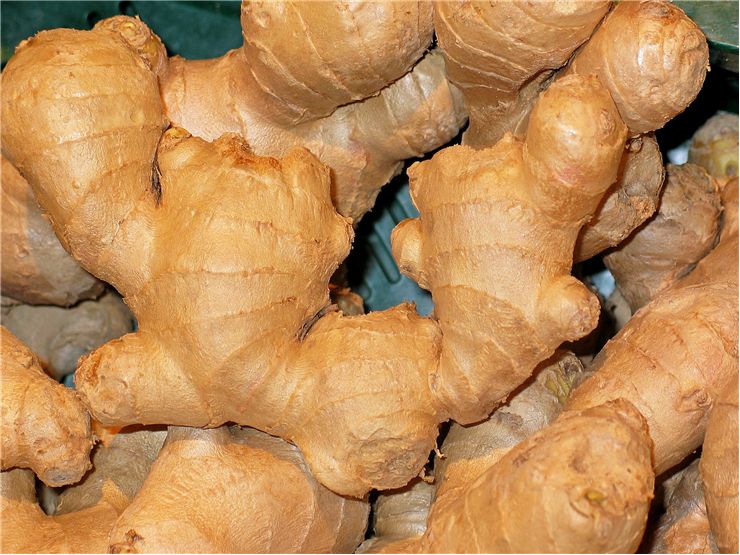The Health Benefits of Ginger
Ginger is a type of flowering plant whose rhizome (subterranean stem of a plant) we use as a spice, as food, or as a medicine. This rhizome we call “ginger root” or simply “ginger”. Ginger belongs to family Zingiberaceae, which also includes turmeric, cardamom, and galangal.
Ginger originates from the southern China. From China, it spread to other parts of Asia, West Africa, and the Caribbean. When the Europe connected with the India by the space trade routes in the first century AD, ginger was one of the spices that was brought. India is even today the largest producer of ginger in the world.

Name “ginger” comes a long way through a lot of languages but basically from the Sanskrit word “srngam” which means “horn body” (describing the shape of the ginger's rhizome) or from an ancient Dravidian name “inchi-ver”, where “inchi” means “root.”
The rhizome of ginger is gathered when the stalk withers, one year after it is planted. Harvested rhizome is immediately killed, to prevent it from sprouting, by scalding it in the hot water or by washing and scraping it.
Ginger is generally used as a spice but it can also be used in many different ways. Young rhizomes of ginger can be pickled in vinegar or sherry and eaten as a snack. Young ginger rhizomes can also be steeped in boiling water and mixed with honey and orange or lemon to make ginger tea as a prevention of cold. Candies can also be made out of ginger as well as wine. There are commercial wines made of ginger on the market since the 18th century. Juice of ginger is used as a spice for flavoring food like seafood, and various vegetarian and meat cuisines of many countries. Mature ginger is dry and used powdered in many recipes like gingerbread, cookies, crackers and cakes, ginger ale, and ginger beer.
- If used in reasonable quantities ginger is considered safe for use although it can interact with some anticoagulant drugs. Other effects of overuse are bloating, gas, heartburn, and nausea.
- Ginger can work as appetite inducer.
- Three ingredients that ginger has, chromium, magnesium and zinc, improve blood circulation and prevent chills, fever, and excessive sweating which is good when we have cold.
- Some studies say that those that are given ginger suffer less from motion sickness. The true reason for this is yet unknown.
- Some early studies of American Cancer Society say that there is a chance that ginger can help keep tumors from developing in some animals. It is still early to tell if the ginger will have the same effect on humans but it is worth researching.
- Ginger has vitamins B1, B2, B3, B5, B6, B9, C, and E. As of minerals it has calcium, magnesium, iron, manganese, phosphorus, potassium, sodium, and zinc.
- Ginger may provide short-term relief in cases of pregnancy-related nausea and vomiting. For other types of nausea, we are still not sure.
- One more benefit of ginger is that it stimulates gastric and pancreatic enzyme secretion and with that improves the absorption of essential nutrients from the food that we eat. One more reason to use it as a spice in your food.
- There are some indications that ginger reduces inflammation in the organism in a similar way to aspirin or ibuprofen, meaning that it may relieve swelling and pain.
- Ginger tea can also help calm an upset stomach and is an excellent natural heartburn remedy. Mixed with brown sugar, Chinese medicine uses ginger tea in the treatment of menstrual cramps.
- People with osteoarthritis or rheumatoid arthritis experience reduced pain when they consume ginger regularly because ginger has anti-inflammatory compounds called “gingerols” which are very potent.

